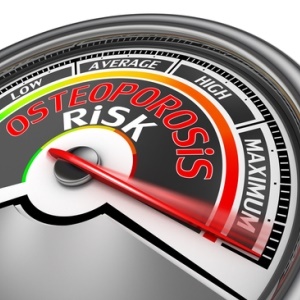
Previous studies have reported conflicting results concerning soy isoflavones (40 to 99mg/d doses) and bone health for postmenopausal women. But the new study adds to the debate by reporting that high-dose soy isoflavone supplements (126mg/d) did improve bone density, with no severe adverse effects
Limiting bone loss in post-menopausal women could ease the burden of osteoporosis, a disease that affects half of all women over the age of 50.
Previous studies from China have linked soy isoflavones to increases in bone mineral density (BMD), while a recent large study in the Archives of Internal Medicine (2005, Vol. 165, pp. 1890-1895) reported that high soy consumption was linked with a 48 percent decrease in fractures for women who had been menopausal for less than 10 years.
How the research was done
The researchers, from the Sun Yat-sen University and Acatris Holdings, recruited 90 early-postmenopausal women (average age 52) to take part in the six-month, single-blind, randomised, placebo-controlled trial.
The women were randomly assigned to one of three groups and received daily soy supplements giving daily isoflavone doses of zero (placebo), 84mg, or 126mg.
The supplements were provided by Acatris (SoyLife) and contained 7,05 percent isoflavones in the following concentrations: 52 percent daidzein, 33 percent glycitein, and 15 percent genistein.
Bone mineral density (BMD) was measured at the start and end of the trial using dual-energy X-ray absorptiomety (DXA). Urinary excretion of deoxypyridinoline (Dpd) was also measured – Dpd was used as the bone-specific biomarker of bone resorption (bone thinning).
Higher bone mineral density
The results, published online in the European Journal of Nutrition (doi: 10.1007/s00394-006-0602-2), show that at the end of the intervention period, the women taking the highest daily dose showed the least decrease in bone mineral density, particularly at the lumbar spine and femoral neck.
Supplementation with 126mg resulted in a 0,36 percent increase in BMD at the lumbar spine, compared to a 1,42 percent decrease in the region for the placebo group.
The BMD at the top of the hip bone (femoral neck) increase by 1,57 percent for the high-dose isoflavone group, compared to a 0,59 percent decrease for the placebo group.
Urinary levels of Dpd increased by 30 percent in the placebo group, showing that bone thinning was occurring. However, in the high-dose isoflavone group there was actually a 3,8 percent decrease in the Dpd excretion at the end of the intervention period.
No adverse effects were reported by the volunteers, with the exception of short-lived sensations of thirst at the start of the intervention period.
Positive dose-dependent effect
“Our findings suggested that soy isoflavones had a significantly positive dose-dependent effect on attenuating bone loss at the spine and femur neck, possibly via the inhibition of bone resorption in postmenopausal Chinese women,” concluded the researchers.
There are several limitations that should be noted with this study. Firstly, the study was single-blind, which may have introduced some observational bias from the researchers, while the sample size and study duration were also relatively small to allow generalisation of the results.
The results were welcomed by Acatris, makers of the SoyLife ingredients used in the study, and co-funders of the research.
Natural, safe alternatives important
Jocelyn Mathern, RD and technical specialist, Acatris, said: “It is imperative to find natural, safe and effective alternatives for women to help maintain bone health after menopause – without the risky side effects associated with long-term hormone replacement therapy use.
“This promising research is another step in advancing soy germ isoflavones as a safe, effective option.”
Mathern said that more studies were ongoing to investigate the effects of either soy or isoflavones on bone density in humans, including the Osteoporosis Prevention Using Soy (OPUS) study - a multi-site, two-year research study on the use of soy isoflavones to prevent bone loss in 400 postmenopausal women. This study is also using Acatris’ SoyLife product, said Mathern.
Source: Decision News Media
Read more:




 Publications
Publications
 Partners
Partners














